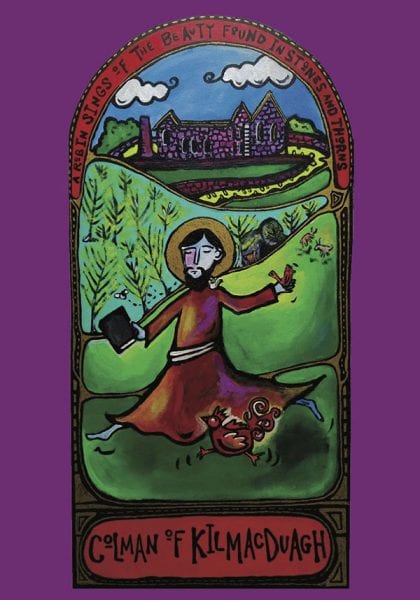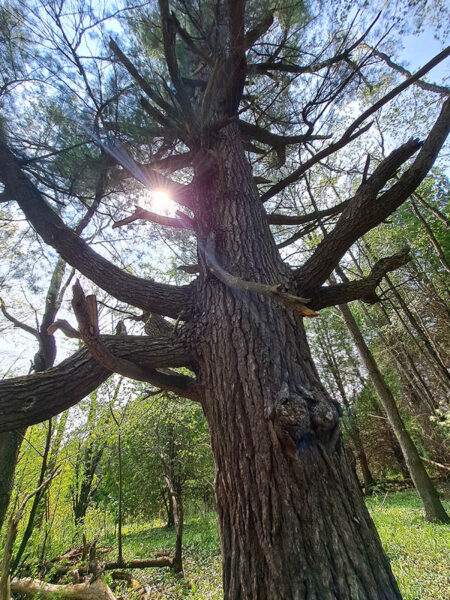Last spring we launched a series with poets whose work we love and want to feature and will continue it moving forward.
Our next poet is Bonnie Thurston, whose work facilitates “seeing through” the particular to universals Read her poetry and discover more about the connections she makes between poetry and the sacred.
Compassion in a Cold Climate
After mild December, sudden cold
scalpeled in sharply, dropped snow,
a bandage covering wounds.
We are all wounded, rent asunder
by our intransigent opinions,
by our palavering politicians
interested in positions of power
but not good, ordinary folk
who keep the engine of state
chugging relentlessly on
with no discernible direction.
The whine of arctic wind,
the sting of sleet on skin
are bracing, enlivening, a tonic
against the tempting enervation
of bad news from every direction
which causes an instinctive
drawing protectively within.
Frigid air makes breathing ragged,
the lungs ache, the eyes water,
makes the body remind the heart
that its hidden hurts are holy
only when they knit private pain
to the world’s awful wounds,
when they fan the flame of caring,
when they keep compassion alive.
Themes of Her Work
I try to articulate the timeless in the temporal, the aliveness in everything. My primary “subject” is landscape, rootedness in place conferring identity and stability that facilitates “seeing through” the particular to universals. An admitted Eyore, darkness is a perennial theme, but darkness as unknowing more than evil or threat. Recent poems respond allusively to “current events.” I create spare poems (whittle out anything un-necessary) that are consciously alliterative, and recently experiment with a “not sonnet” form: fourteen lines unrhymed lines, maintaining the divisions of their Petrarchan and Shakespearian progenitors.
ad-din‘
Beneath the forms,
the eternal essence,
multitudinous variations
reflecting Divine kindness:
the gift of many ways
for many peoples,
all beloved, all desired.
When the wind blows,
grasses of the fields
bow down in ranks.
Flowers are multiform,
but all yearn toward
a singular source of light:
the Face behind the faces.
‘Quintessential religion
Poetry and the Sacred
Beyond Word’s Horizon
I came to love of God
through literature and languages.
I came by words to the Word,
loved both, though variously,
was brought to shores of silence,
set sail on uncertain tides,
set sail on becalmed seas,
set sail to surrender,
go west into unknowing.
In “Lines Composed a Few Miles Above Tintern Abbey.” Wordsworth describes nature’s “… presence that disturbs me with … joy,” just the presence I experienced in home’s mountains: “… something far more deeply interfused,” the “motion and…spirit, that impels/All thinking things, all objects of all thought,/ And rolls through all things.” I was hooked.
Islam suggests God spoke one word: Be. John’s Gospel asserts creation sprang from language. “In the beginning was the Word” Who by language invites us to something else, more, other than appearances. Poetry clothes the otherwise invisible. Through it we see what IS (reality) and what might be (possibility). That clothing is my practice. My lectio is Scripture (the ultimate allusive, metaphorical language). Writing is my authentic prayer, an attempt to articulate the glimpsed “beyond” or “other,” to honor God’s gratuitous, humanizing gift of language and return the gift to its Giver.
Outside Time
Being outside time,
God is not experienced
by increments,
but suddenly
as a match struck
in a dark room
which proves to be
a treasure house,
as lightening bolts
explode the night sky
eclipse lesser, stellar light.
God is not temporal,
not process but Presence,
creation, infinite epiphany.
“Beware the Ides of March”
In lovely foretaste of future,
temperatures soared skyward.
Peachy dawn promised bright days.
Returned birds sang avian duets.
Two robins intently engaged
in awkward, complex sex dance.
But today is shrouded in frost
and winter’s watery light.
Three does in winter coats
limp across the icy hill
nibbling at what there is to eat,
bark on the young pear trees
that will not blossom
when spring finally arrives.
About Bonnie Thurston
Bonnie Thurston resigned a Chair and Professorship in New Testament to live quietly in her home state of West Virginia. Author or editor of 22 theological books, she contributes to scholarly and popular periodicals. [An internationally known Merton Scholar, her doctoral dissertation was one of the first on Merton.] She began writing poetry as a child, published her first poems in college, and is now widely published in the U.S.A. and U.K. Of her six collections of poetry the following are available [from Amazon or directly] from the publishers.
Belonging to Borders (2011) LitPress.org
A Place to Pay Attention (2014) CinnamonPress.com
Practicing Silence: New and Selected Verses (2014) ParacletePress.com
From Darkness to Eastering (2017) IonaBooks.com
A lover of the West Virginia hills, Bonnie is an avid reader, gardener, cook, and classical music lover.
Dreaming of Stones
Christine Valters Paintner‘s new collection of poems Dreaming of Stones has just been published by Paraclete Press.
The poems in Dreaming of Stones are about what endures: hope and desire, changing seasons, wild places, love, and the wisdom of mystics. Inspired by the poet’s time living in Ireland these readings invite you into deeper ways of seeing the world. They have an incantational quality. Drawing on her commitment as a Benedictine oblate, the poems arise out of a practice of sitting in silence and lectio divina, in which life becomes the holy text.





